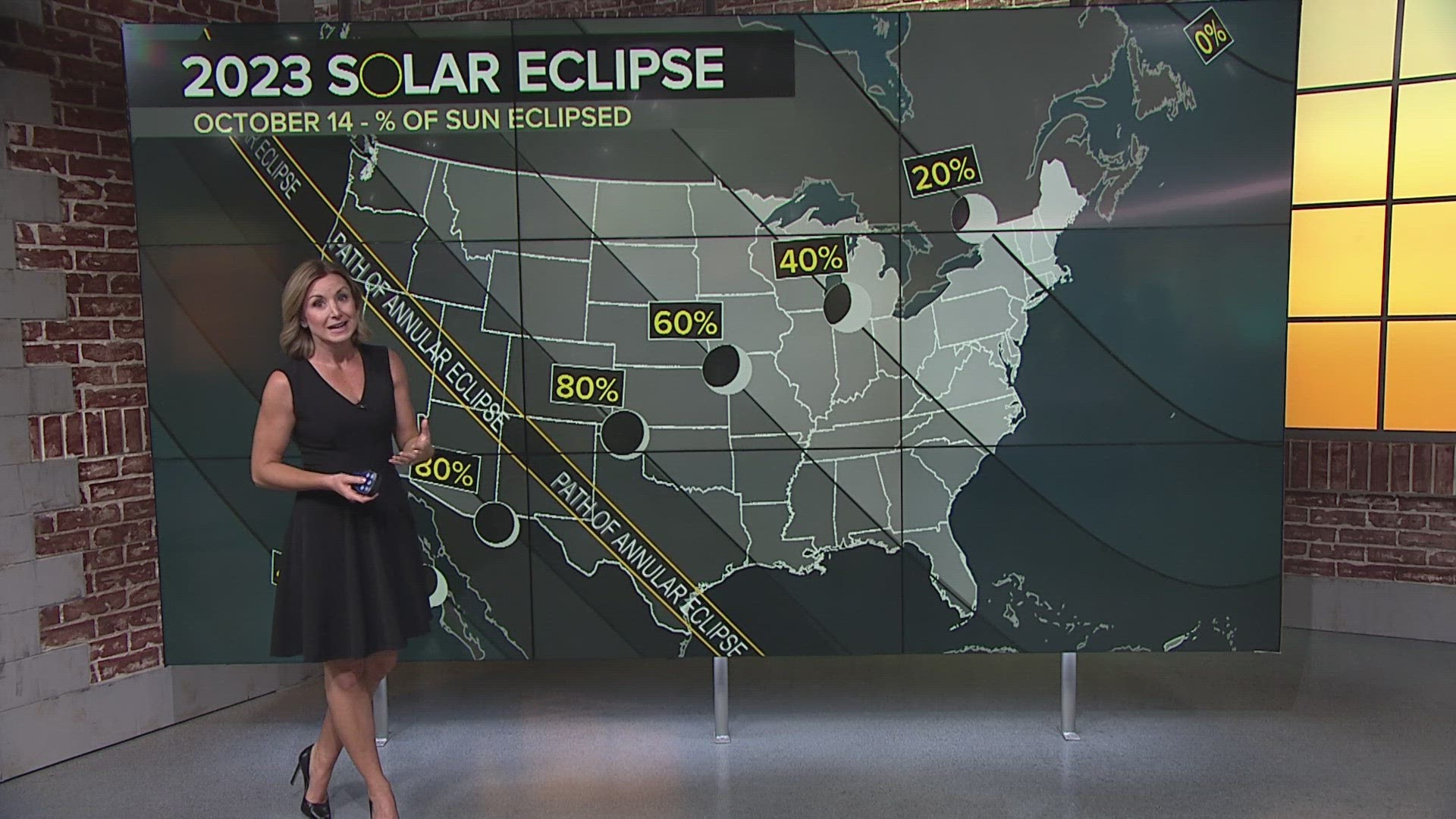WASHINGTON — The "Ring of Fire" solar eclipse will pass over the United States this Saturday, Oct. 14, leaving a bright ring of sunshine visible around the moon. Only a narrow line of cities stretching from Texas through Oregon will see the full "Ring of Fire," but the entire United States will see at least a partial solar eclipse. You can check out this interactive map to see the path of the eclipse.
The "Ring of Fire" is also referred to as an "annular" solar eclipse, which isn't that different from a "total" solar eclipse. When the eclipse occurs on Oct. 14, the moon won't be large enough to fully block the sun - hence the "Ring of Fire" still visible behind the moon.
The next total solar eclipse happens on April 8, 2024. The moon will fully block the sun and the sky will fall dark for several minutes.
Here in D.C. on Saturday, 30% of the sunshine will be blocked by the moon, making the sun appear crescent shaped. You may remember the last time our region experienced the full "Ring of Fire" back in 2021.
The sun will begin to be obscured at 12:00 p.m. and the partial eclipse will end at 2:39 p.m. The peak in D.C. is expected at 1:19 p.m. Unfortunately, our forecast does not look good at all for viewing conditions. Clouds and showers will fill the sky during the eclipse timeframe.
There are a number of local parks and observatories hosting viewing parties for the partial eclipse here in the DMV.
- The National Air and Space Museum is throwing an eclipse themed event for the whole family from 10 a.m. to 2 p.m.
- The Steven F. Udvar-Hazy Center in Chantilly, VA is hosting a free viewing event with a filtered telescope starting at 11 a.m.
- The Rock Creek Park Nature Center's planetarium will show the film "Eclipse: The Sun Revealed" throughout the day.
- Fairfax County Parks are hosting eclipse-watching parties at three area parks.
But if you try and check it out this weekend on your own, don't forget you'll need protective eclipse glasses to avoid eye damage. Click here for more tips from NASA Science on how to safely view the eclipse.

